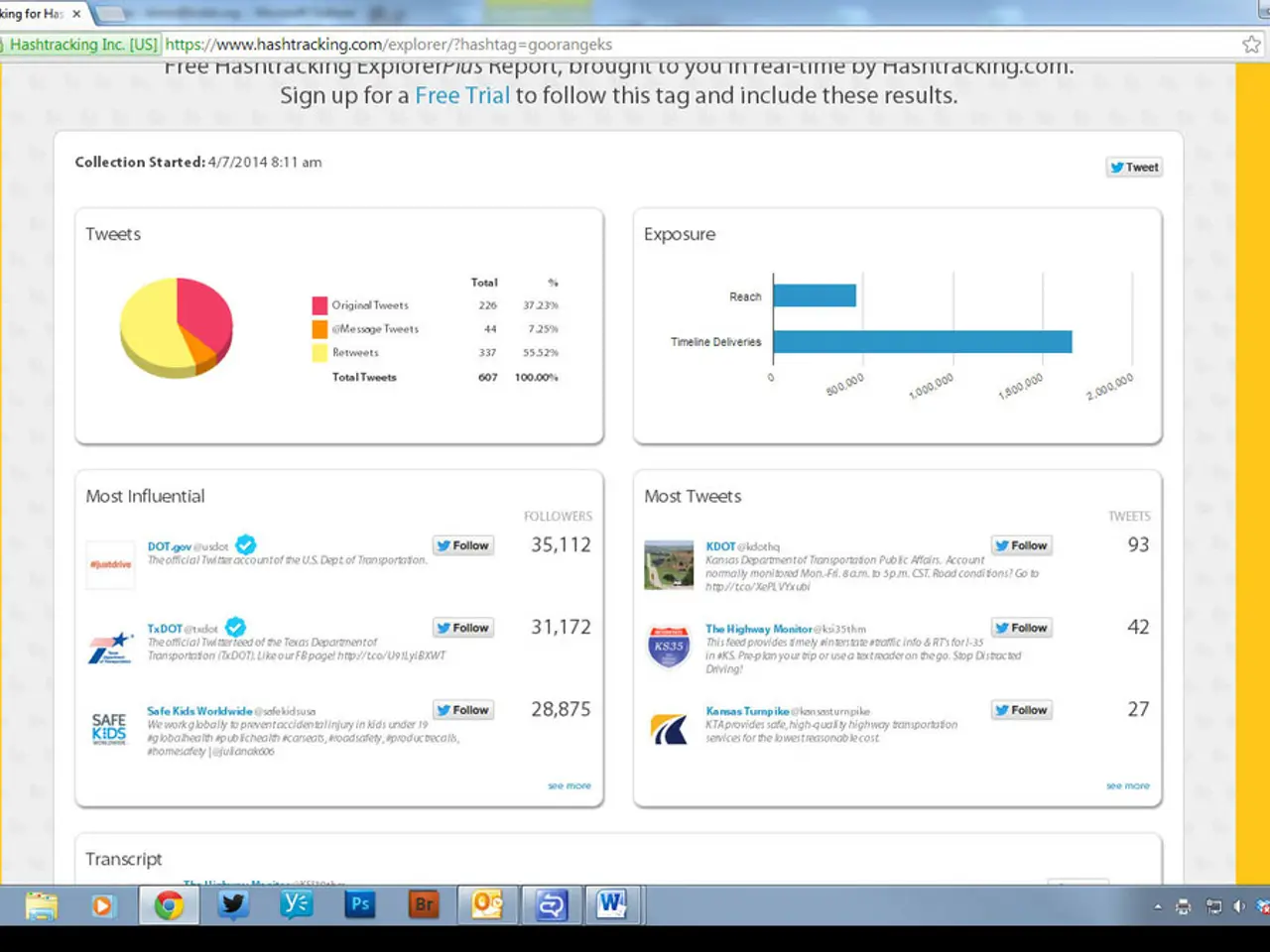With no major rivals in sight, is it because Palantir stands alone as an unchallenged pioneer?
Palantir Technologies, a trailblazer in artificial intelligence (AI) and data analytics, has been stirring the tech industry. With a market cap above $400 billion and a revenue of $1 billion, the company is currently the top performer in the S&P 500, having outperformed even in the latest quarter with a 48% revenue growth and an operating margin of 27%.
However, the success of Palantir has not gone unnoticed. Major tech companies like Alphabet, Microsoft, and Amazon have shown interest, potentially viewing Palantir as a ripe target for competition. Yet, Palantir's strong government contracts and technological advantage have so far created significant barriers for these companies, preventing them from directly challenging Palantir.
Salesforce, IBM, C3.AI, and SAS are among the potential competitors to Palantir, with Salesforce explicitly competing in the AI market. Despite Palantir's current technological lead in many applied areas, the growing competition from these companies could lead to a 'tipping point' in the market.
Palantir's management believes that its technology is superior enough to withstand challenges from big tech. However, they acknowledge that the company has so far benefited from a relatively open playing field. As Palantir continues to expand, it is likely to attract more competition from larger tech companies.
The success of Palantir's technology will be tested as it faces increased competition. Criticism has focused on privacy concerns, including the creation of a digital ID on Americans, and the company's role in enabling government surveillance. The Trump administration chose Palantir to help federal agencies share information, with the company's data analytics platform becoming a favourite in the administration, used by the Department of Government Efficiency, Immigration and Customs Enforcement, and other agencies.
Controversy has also swirled around Palantir, with Amnesty International criticising the company before its initial public offering in 2020 for failing in its responsibility to protect human rights. Thirteen former employees signed a letter condemning Palantir for contracting with ICE to provide 'near real-time visibility' into migrant movements.
A desire to avoid the controversy that has surrounded Palantir may be restraining big tech companies from developing similar analytics platforms. Palantir primarily competes with the internal software development efforts of its potential customers rather than other established software companies.
Palantir aims to increase its revenue to slightly more than $4 billion. It remains to be seen whether the company can reach this target and maintain its lead in the face of growing competition from big tech. If Palantir can successfully navigate these challenges, it could solidify its position as a leader in the AI and data analytics industry. If not, we may witness a significant shift in the market landscape.
Read also:
- Ford Discontinues Popular Top-Seller in Staggering Shift, Labeled as a "Model T Event"
- 2025 Witnesses a 27% Surge in Worldwide Electric Vehicle Sales, Despite Opposition to Electrification Policies in the U.S.
- Summarized Report: Insights from the Realm of Transportation
- Recorded surge in electric vehicle registrations during the initial half of the year







